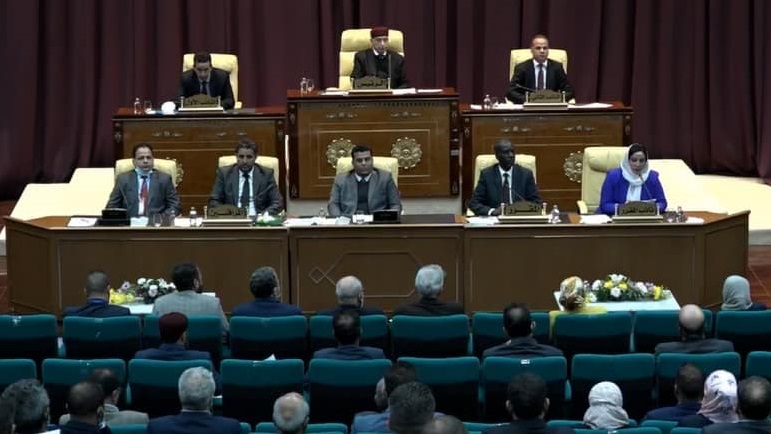Libya’s House of Representatives is set to decide the fate of the UN-sponsored Government of National Unity headed by prime minister Abdul Hamid Dbeibah. The meeting of the legislative body began on Monday, March 8. As per the road map to peace agreed upon by the members of the Libyan Political Dialogue Forum (LPDF) which had elected the interim government last month, the parliament has 21 days to approve the new government. If the parliament fails to do so, the LPDF will have to elect a new government again.
Dbeibah has proposed a 35-member unity government. In his recorded message before the meeting of the parliament, he urged the members to not miss out the opportunity to unify the country and seek greater good over individual interests.
However, on Monday, the session to grand approval was suspended until Tuesday as the parliament invited the prime minister for consultations. Some of the members of the parliament wanted him to clarify reports of alleged vote buying during his election.
The United Nations Support Mission in Libya (UNSMIL) overseeing the peace process, thanked the speaker of the house of the representative Agila Saleh, who also unsuccessfully contested the election for the president last month, and other members of the parliament for “convening a reunited session after many years of divisions and paralysis”.
Mohamed Younes al-Menfi was elected as the head of the interim presidential council.
The session of the parliament in Sirte is the first combined meeting of elected members of the Libyan parliament since its split in 2014 after a failed coup attempt in the capital Tripoli which also marked the failure of the peace process led by the UN and beginning of the current round of the war in the country dividing Libya in several parts. A majority of the members of the parliament which was elected in 2014 were located in the country’s eastern Tobruk following the disagreement with the General National Congress, the interim parliament elected in 2012.
Though the HoR is also divided, on Monday, 132 members out of 200 joined the meeting at Sirte.
If approved, the interim government will replace all the existing rival administrations in the country and administer the country until the national elections on December 24, 2021.
The UN-sponsored peace process has revived the hopes of the end of the decade-old war in Libya that began after the NATO-led invasion in 2011 overthrew the government led by Muammar Gaddafi. Following a few years of conflict, the UN imposed arms embargoes and initiated a peace process leading to the formation of the Government of National Accord (GNA) led by Fayaz al-Sarraj. These UN initiatives failed to prevent the war and the parliament located in Tobruk supported Khalifa Haftar’s forces. Both major factions in turn were supported by different countries which supplied weapons and armed militias in complete violation of the UN arms embargo.





